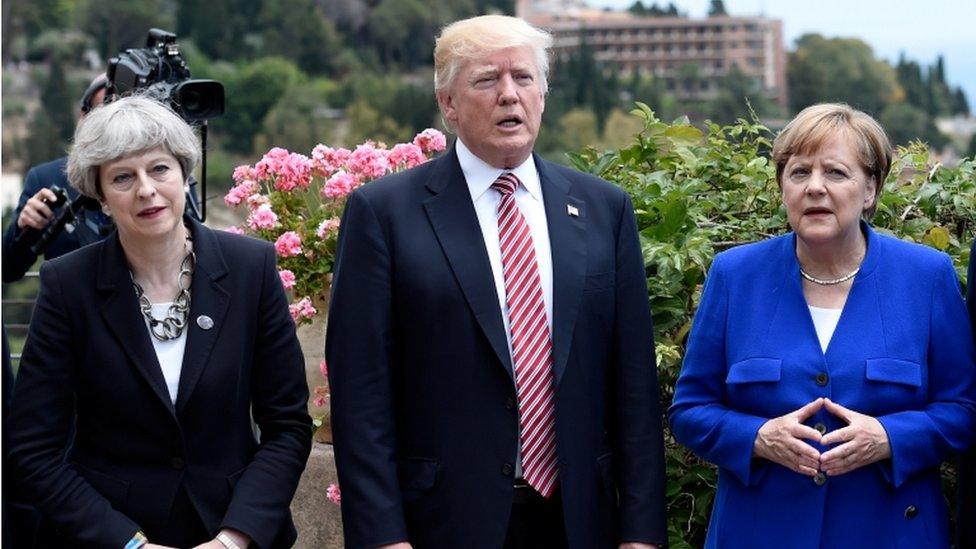G20: Theresa May says UK will be 'bold' on world stage
- Published
May vows to be 'bold' on the world stage at G20 summit
Theresa May has rejected claims the UK is losing global influence because of Brexit, insisting it will continue to be "bold" on the world stage.
Speaking at the G20 summit in Hamburg, the prime minister said in areas like free trade and counter-terrorism, the UK remained a key international player.
Amid speculation about her future after the election, she said she would take a lead, not "sit back" and be "timid".
She is expected to press President Trump on the Paris climate deal.
As she attends her first gathering of world leaders since the general election, Mrs May has dismissed suggestions that political and economic uncertainty from the UK's decision to leave the EU and speculation about her own future is hampering the UK's effort to lead on the world stage.
She rejected claims by former foreign secretary William Hague that the UK will lose influence on the world stage after Brexit.
"What I see as I talk to leaders around the world is engaging with and working with the UK - new friends and old allies alike - as we leave the EU," she told the BBC's John Pienaar.
"There are no prizes for guessing that the election result did not come out as I hoped it would.
"There are two ways the government can react to that. We either be 'very timid' and sit back or we can be bold and that is what we are going to be.
"We are going to bold because the UK is facing challenges that we need to address."
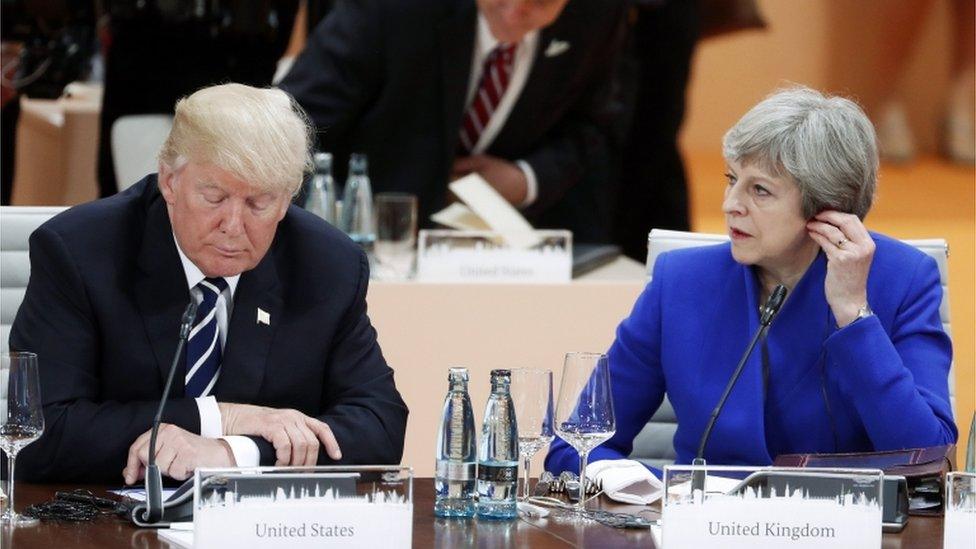
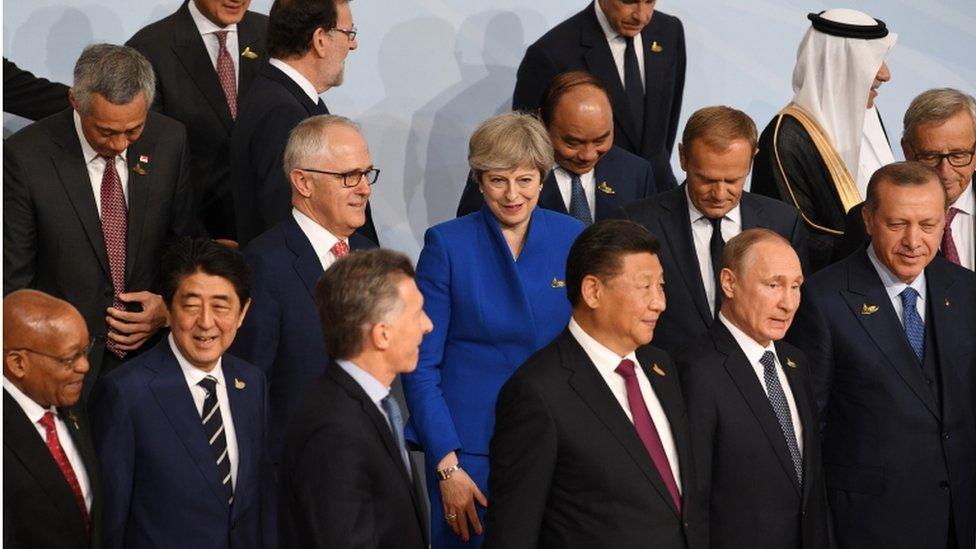
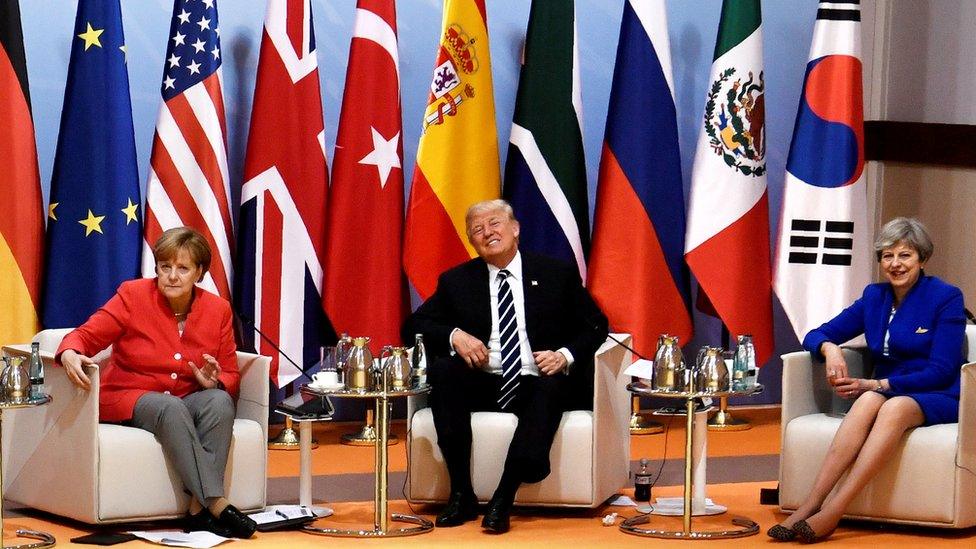
On the issue of counter-terrorism, the PM will tell leaders that must be no "safe spaces" for terrorist funding in the global financial system, pledging action to track small sums of money used to finance "lone wolf" attacks.
The prime minister said the evolving terror threat needed to be tackled "from every angle", including working will allies in the Gulf, such as Saudi Arabia, which has been accused of supporting extremist groups in the UK - claims it has strongly denied.
"I sit down with Saudi Arabia and others and talk about the issue of terrorist finance," she said.
"What I am doing here at the G20 is raising the need for us to work collectively and internationally to deal with terrorist finance not just on the large sums of money that funding terrorism but also to find ways to work with financial services and banks to identify small-scale transactions that can sometimes lead to terrorist activity."

Analysis, by BBC deputy political editor John Pienaar, in Hamburg
While world leaders here confront crises from North Korea to climate change, Britain's prime minister faces an additional challenge: maintaining her claim to be numbered among them.
Theresa May used her moment in the spotlight to call for more effort to close down the sources of finance for international terrorism.
That won't be hard for leaders to agree in principle. Much harder for Mrs May to persuade President Trump to rejoin the consensus supporting action against climate change, though she told me she hoped that might be possible.
Her wider mission though, is to prove wrong those who say Brexit will weaken the UK's influence - and to recover from the diminution of authority that followed the June election.
Today, she set out her unwanted choice: "We can be very timid, we can sit back, or we can be bold and that's what we're going to be."
But her comparative weakness is plain to see among the leaders gathered in Hamburg. And the practical task of achieving a Brexit judged successful by her divided country and business leaders can best be described as a work in progress.

New technology and partnerships could help banks and financial technology companies spot suspicious small transfers of cash, she will say, which are hard to identify but must be challenged.
She will also press the need for better information sharing about people known to have travelled to fight in IS-controlled territory - to track them if they attempt to return to their home countries.
Mrs May is expected to raise climate change with US President Donald Trump, stressing that Britain "remains fully committed" to the 2015 Paris climate accord and hoping Mr Trump will reconsider his decision to pull the US out of it.
She told the BBC that she hoped Mr Trump would listen to the G20's "collective message" on the issue.
"I was clear to President Trump how disappointed the UK was that the United States had decided to pull out of the Paris Agreement and also clear that I hope that they will be able to find a way to come back in to the Paris Agreement," she said. "I think that's important for us globally."
The summit will also see Mr Trump meet Russian President Vladimir Putin for the first time. The meeting will take place at 15:45 local time (13:45 GMT) and last for an hour, Russian media report.
Mr Trump met German Chancellor Angela Merkel on Thursday and the pair spent an hour talking about North Korea, the Middle East, the conflict in eastern Ukraine and G20 issues.
There have been clashes between police and protesters in Hamburg ahead of Friday's meeting, Up to 100,000 protesters are expected in the German city.


- Published6 July 2017
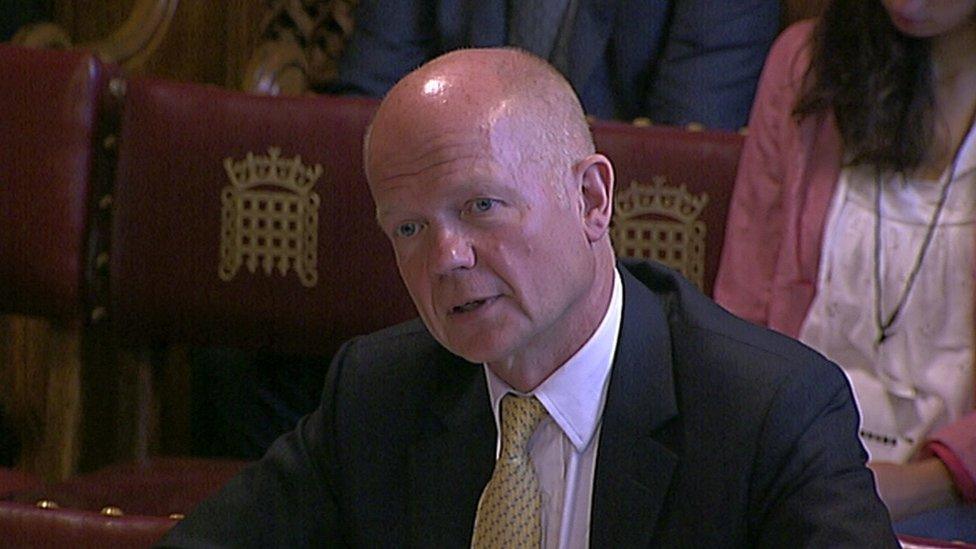
- Published7 July 2017
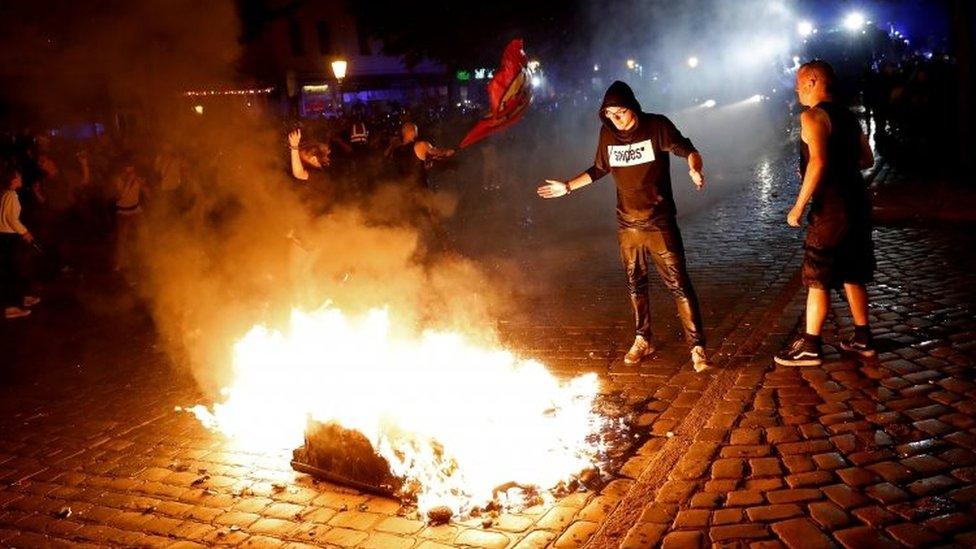
- Published26 May 2017
